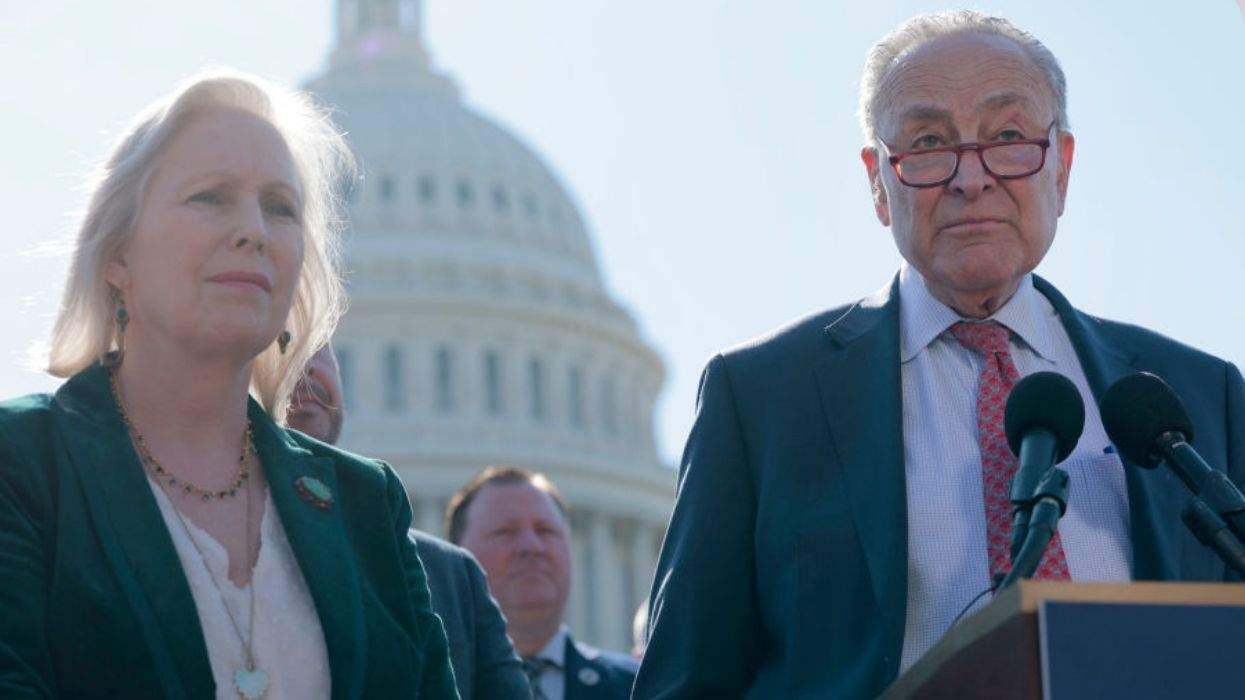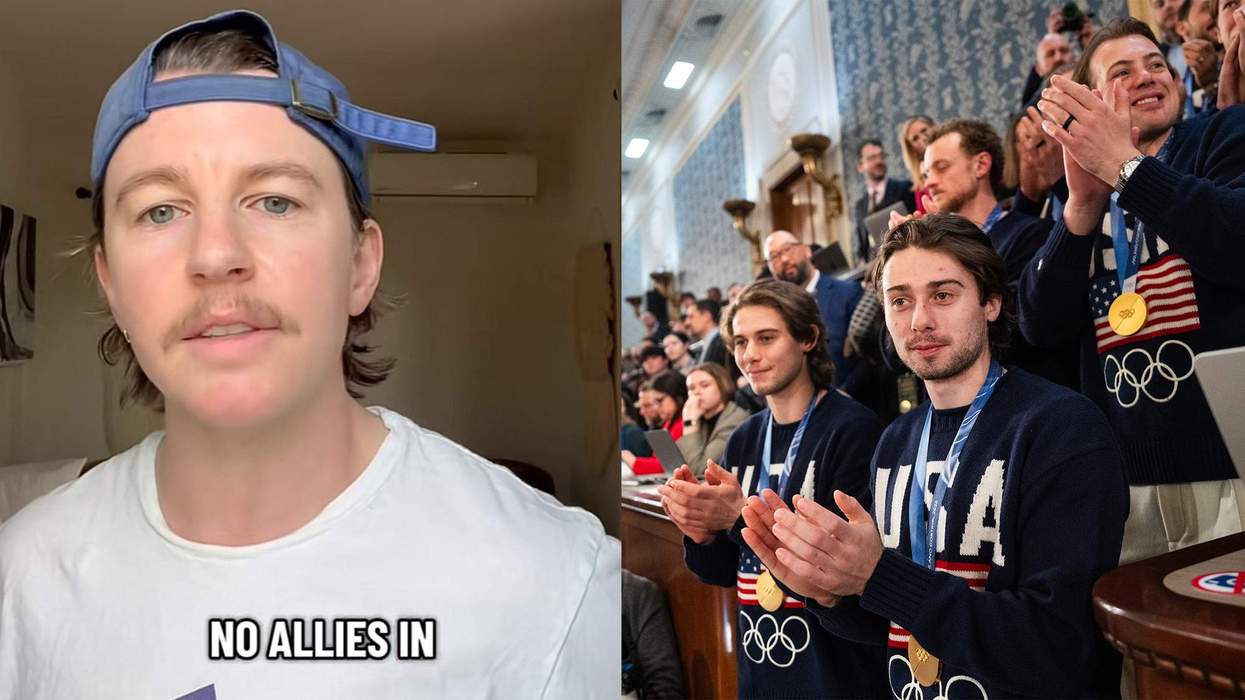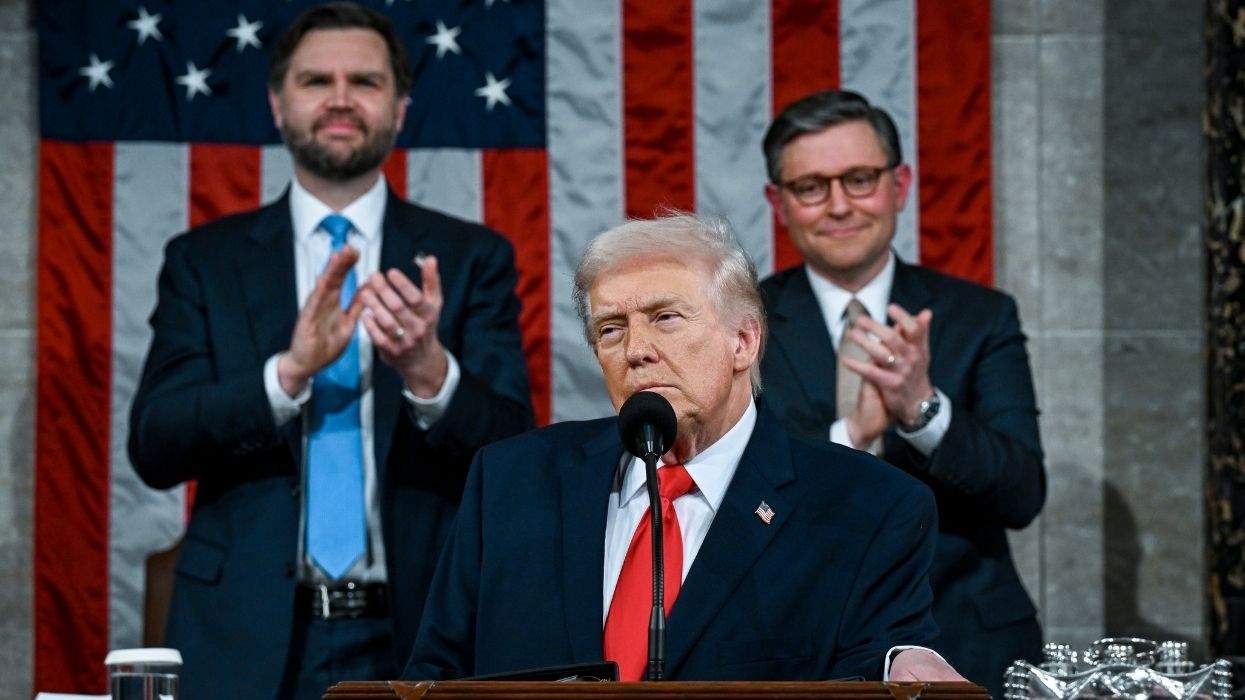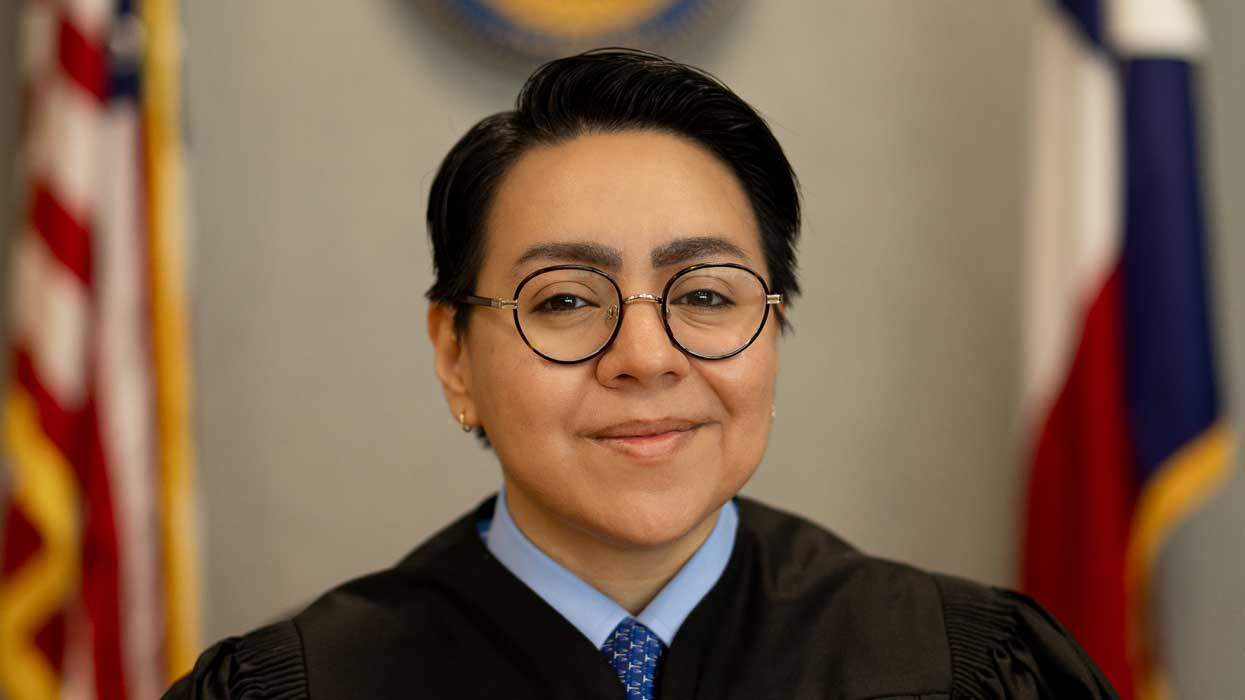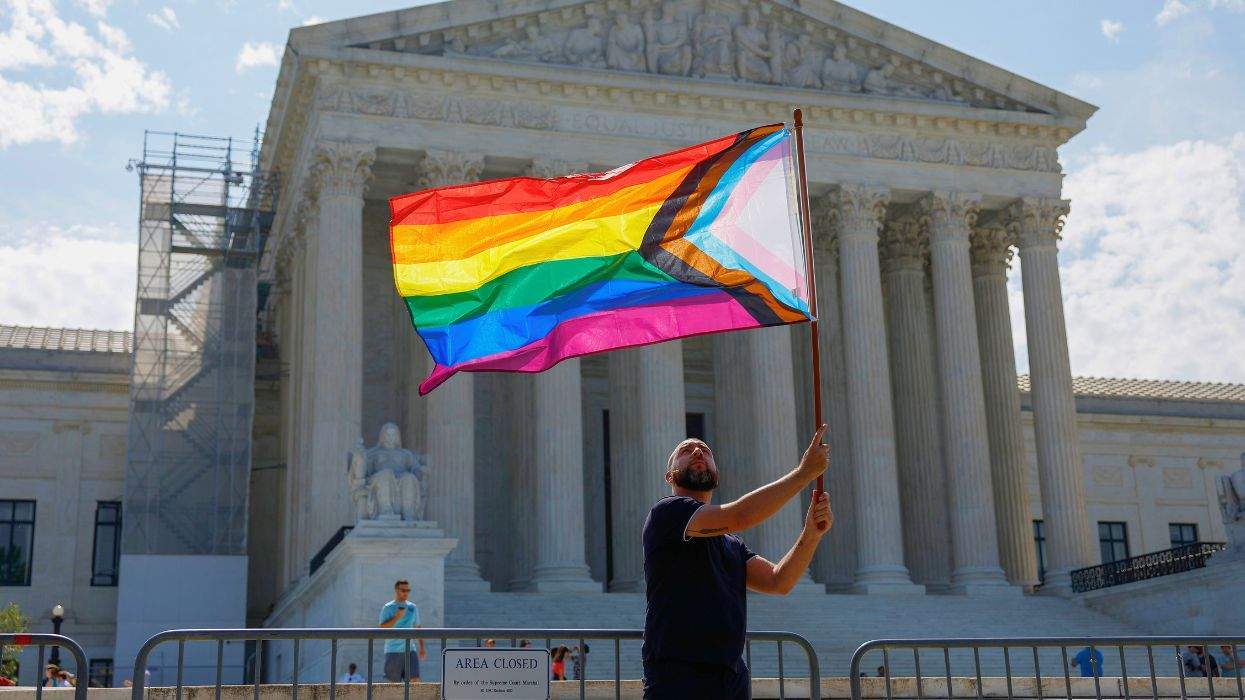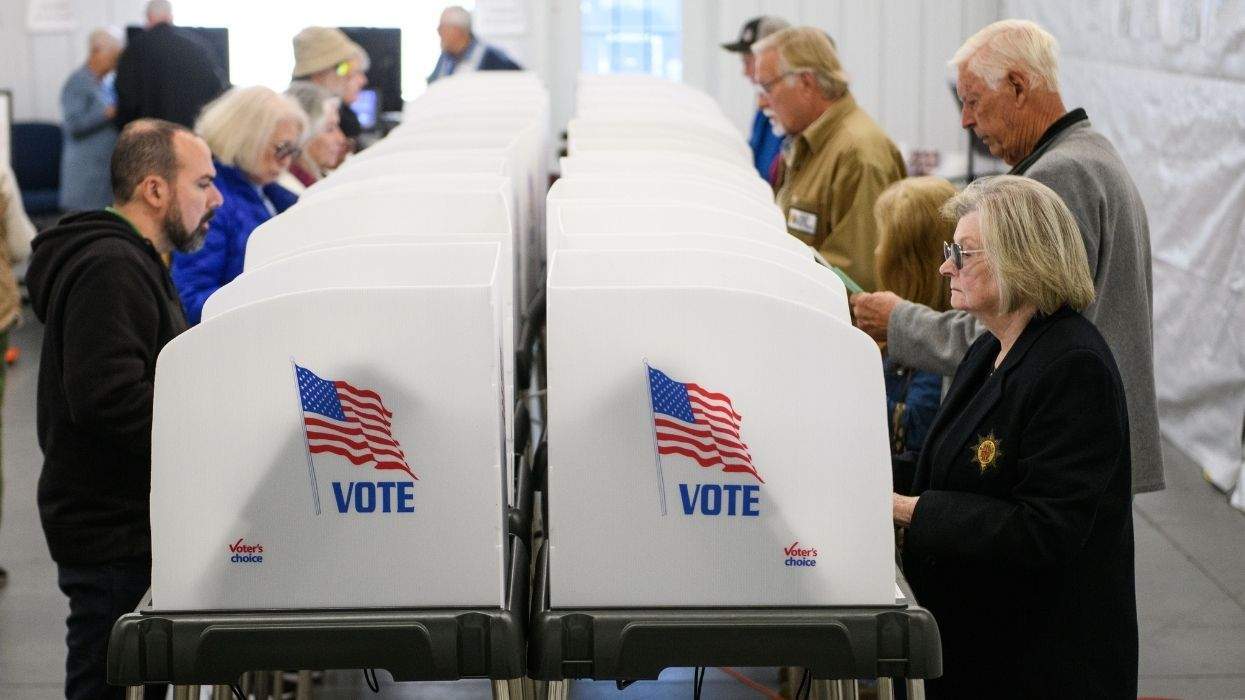One year ago the fight for gay marriage rights appeared to be gaining ground. Though dozens of states had passed so-called defense of marriage laws, advocates took heart in state-sanctioned civil unions in Vermont, expanded domestic-partner benefits in California, and a U.S. Supreme Court decision striking down the Texas sodomy law. Then came the most stunning victory: a decision by the highest court in Massachusetts making the state the first to sanction same-sex marriages. The ruling was hailed by supporters as the start of a new era. But the pendulum swings both ways. As supporters celebrate the first anniversary of the landmark Massachusetts ruling November 18, opponents' hopes are bolstered by this year's strong election showing, when 11 states pushed through constitutional amendments banning same-sex marriage, joining six others that had done so earlier. And President Bush has vowed to make a federal constitutional amendment banning same-sex marriage a priority of his second term. Both sides now say momentum is moving in their favor. "I think what we're seeing now is a visible manifestation of the momentum that has been building and will continue to build," said Mat Staver, president of Liberty Counsel, a conservative Orlando, Fla.-based law group, which is involved in 30 cases around the nation. "Backlash simply means that you're making forward progress," said Josh Friedes, spokesman for the Massachusetts Freedom to Marry Coalition. "I think that people who say it suddenly seems like the radical right has momentum on their side, they're not looking at the broad brushstroke of history." History is often not measured in months or years but in decades and generations. And both sides know the issue of same-sex marriage is not one that will be quickly settled in courtrooms or in the court of public opinion. "In any civil rights movement in our nation's history, when a minority makes significant advances toward full citizenship, that is when the forces against them rise up even uglier than they were before," said David Buckel, director of the Lambda Legal Marriage Project. Supporters of same-sex marriage are pressing their cases in the courts of at least a half-dozen states, hoping they'll eventually succeed when the case reaches the highest court. Lawsuits seeking marriage equality or challenging bans on same-sex marriage have been filed in Nebraska, Washington State, California, New York, New Jersey, and Oregon, the state where the constitutional ban passed by the narrowest margin. Opponents want to capitalize on the backlash and move quickly for a federal constitutional ban. The election loss of Senate Democratic leader Tom Daschle of South Dakota, who helped scuttle a July vote on such an amendment, fosters their hope that lawmakers on Capitol Hill will do what they failed to do last session, Staver said. But Yale law professor William Eskridge, who has written a book about Vermont civil unions, said it would be insanity to move now to change the U.S. Constitution. "The nation is not at rest on this issue," he said. "We should let Mississippi be Mississippi and Vermont be Vermont, and let's see where we are in another 10 years. At that point, there will be another generation of voters and more experience." In the Netherlands, which pioneered same-sex marriage three years ago, the practice now stirs little controversy. In Massachusetts same-sex marriages have taken place virtually without notice or protest since the ruling went into effect six months ago. And in Vermont, where the nation's first sanctioned same-sex civil unions ignited a contentious battle and backlash against elected leaders just a few years ago, exit polls from this election showed a significant change in public sentiment. "The fact of the matter is, where gay people have been given rights, they have been used responsibly," Eskridge said. "They have not led to any of the negative consequences that antigay speakers have suggested, and indeed, people have found gay people make great citizens and they make great parents and they make great married and civil-unioned couples."
Search
AI Powered
Human content,
AI powered search.
Latest Stories
Stay up to date with the latest in LGBTQ+ news with The Advocate’s email newsletter, in your inbox five days a week.
@ 2026 Equal Entertainment LLC.
All rights reserved
All rights reserved
By continuing to use our site, you agree to our Privacy Policy and Terms of Use.
The Latest
Support Independent Journalism
LGBTQ+ stories deserve to betold.
Your membership powers The Advocate's original reporting—stories that inform, protect, and celebrate our community.
Become a Member
FOR AS LITTLE AS $5. CANCEL ANYTIME.
More For You
Most Popular
@ 2026 Equal Entertainment LLC. All Rights reserved

